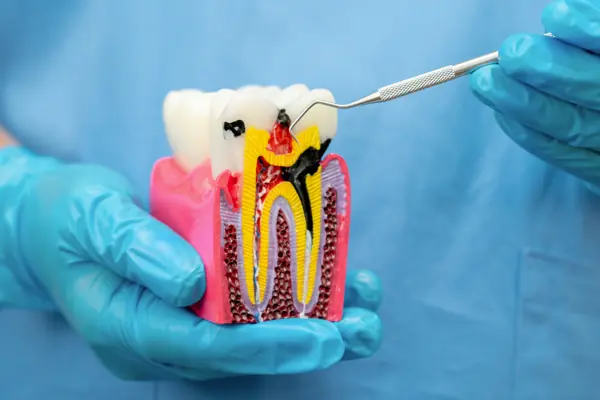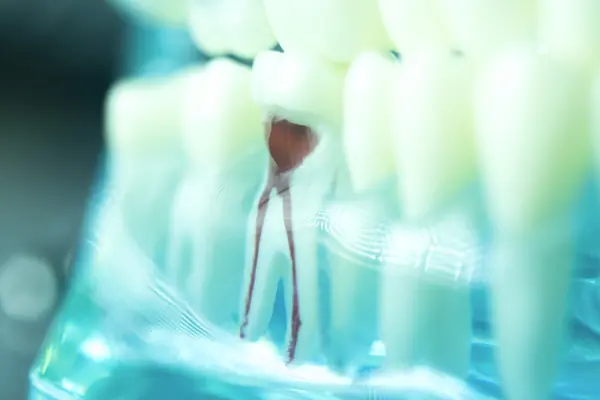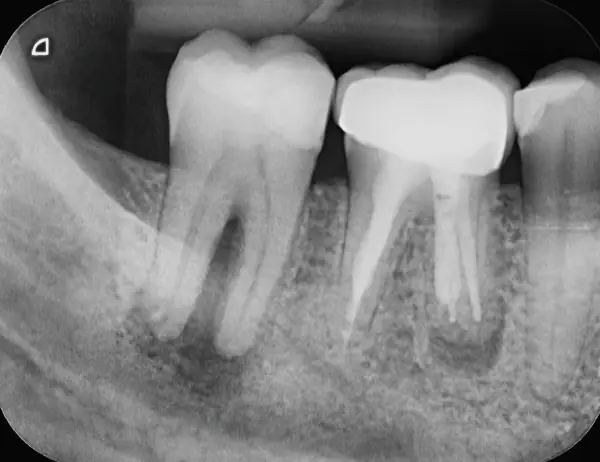Root Canal Procedure at Crescent Family & Cosmetic Dentistry
At Crescent Family & Cosmetic Dentistry, we ensure that every root canal procedure is performed with care, precision, and the latest dental technology to minimize discomfort and maximize effectiveness. Here’s what you can expect during your root canal treatment:
1. Comprehensive Examination and X-rays
Before beginning the root canal procedure, we will perform a thorough examination of your tooth. We may take X-rays to assess the extent of the infection, the condition of the tooth’s root, and any surrounding tissues. This helps us plan the procedure and determine the best course of action.
2. Anesthesia and Pain Management
Root canal procedures are typically performed under local anesthesia to ensure that you are completely comfortable during the treatment. The area around the tooth will be numbed, and you should not feel any pain during the procedure. If you are particularly anxious or nervous, we also offer sedation options to help you feel relaxed and at ease.
3. Accessing the Pulp
Once the anesthesia has taken effect, the dentist will create a small opening in the crown of the tooth to access the pulp chamber. The infected or damaged pulp is carefully removed, and the interior of the tooth is cleaned and disinfected to eliminate any bacteria and debris.
4. Shaping and Cleaning the Root Canals
After the pulp is removed, the dentist will clean and shape the root canals, ensuring that the tooth is completely free of infection. The canals are thoroughly cleaned to prevent the infection from returning.
5. Sealing the Tooth
Once the root canals are cleaned and shaped, they are filled with a biocompatible material called gutta-percha to seal them and prevent future infection. This also helps restore the tooth’s structural integrity. In some cases, a post may be placed inside the root canal for additional support before the final filling.
6. Placing the Final Restoration
After the root canal is completed, the tooth will be sealed with a temporary or permanent filling. In most cases, a dental crown is placed over the treated tooth to restore its shape, size, and function. Crowns are especially important for teeth that have been significantly weakened by decay or trauma, as they help protect the tooth from further damage.
Why Choose Us for Your Root Canal Treatment?
At Crescent Family & Cosmetic Dentistry, we offer compassionate, gentle, and effective root canal treatments. Here’s why we’re the best choice for your root canal procedure:
- Experienced and Skilled Dentists: Our team has years of experience in performing root canal treatments and uses advanced techniques to ensure the procedure is as comfortable and effective as possible.
- State-of-the-Art Technology: We use the latest dental technology, including digital X-rays and advanced root canal instruments, to ensure precise and efficient treatment.
- Personalized Care: We take the time to listen to your concerns, explain your treatment options, and tailor the procedure to your specific needs. Our goal is to ensure your comfort and satisfaction at every step.
- Minimal Discomfort: We use local anesthesia and offer sedation options to ensure that you are comfortable and pain-free during the procedure. Our gentle approach minimizes discomfort both during and after treatment.
- Long-Term Success: Our root canal procedures are designed to save your natural tooth and provide long-lasting results. We provide guidance on post-treatment care and regular check-ups to ensure the health and longevity of your treated tooth.
Restore Your Smile with Us
If you’re experiencing severe tooth pain, sensitivity, or other symptoms of an infected tooth, don’t wait—schedule an appointment with us today! Our expert team is here to provide you with the best possible care, ensuring that your tooth is saved and your smile restored to its full health.
Contact us today to learn more about the process or to schedule a consultation. Restore your smile and reclaim your comfort with our expert dental care.





